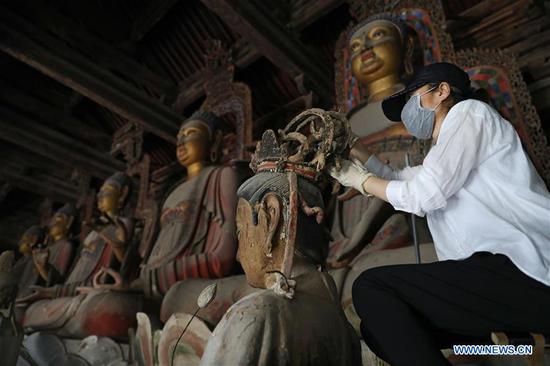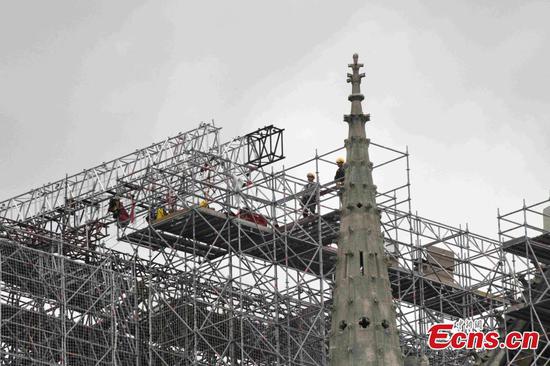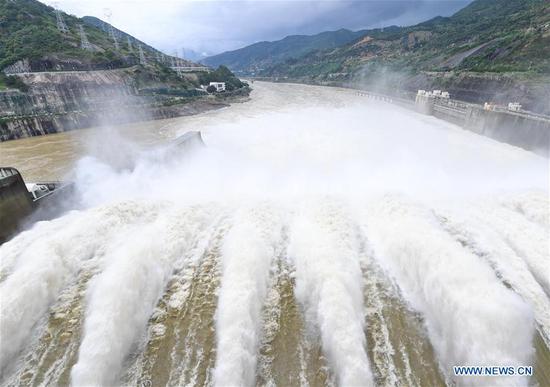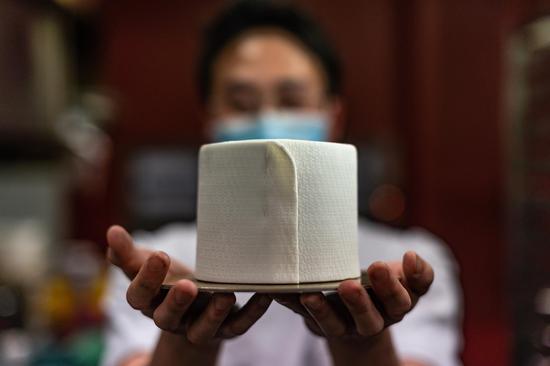
A statue of Confederate States President Jefferson Davis lies on the street after protesters pulled it down in Richmond, Virginia, on Wednesday. PARKER MICHELS-BOYCE/AFP
A statue of Jefferson Davis, president of the Confederate States of America during the 19th century US Civil War, has been pulled down in Richmond, Virginia, which was the capital of the states that seceded from the United States.
The statue of Davis, along famed Monument Avenue, was torn down by protesters on Wednesday night. About 80 miles away, protesters in Portsmouth on Wednesday beheaded and then pulled down four statues that were part of a Confederate monument, according to media reports.
Meanwhile, US President Donald Trump says he "will not even consider" renaming Army bases that were named for Confederate military leaders. House Speaker Nancy Pelosi wants Confederate statues removed from the US Capitol. And stock car racing's governing body NASCAR banned Confederate flags from its races and properties.
The stepped-up drive to remove Confederate monuments and symbols from public and private spaces and names from military posts has come in the aftermath of George Floyd's death at the hands of a Minneapolis police officer now charged with murder. Floyd's death has spawned nationwide and global demonstrations and a national reckoning over the legacy of racism.
There was a major push to remove Confederate symbols in 2017 after a rally of white supremacists in Charlottesville, Virginia, turned violent. Since then, dozens of statues have been removed from public land, but in other cases, cities have encountered resistance and some states have prohibited their removal.
Some say the tributes to the Confederacy inappropriately glorify people who led a rebellion that sought to uphold slavery and the economic system it supported. Others say their removal amounts to erasing history.
"A real reckoning is here," said Kirk Savage, an art historian at the University of Pittsburgh who has written extensively on Confederate imagery. "Confederate monuments have become targets because they are powerful expressions of the brutal practices that led to Floyd's murder; they are the artworks that gild the system."
Some experts are advising local governments to think about whether to tear down Confederate markers, preserve them where they are or relocate them.
"Slow down," cautioned Harriet Senie, an art historian at the City College of New York specializing in public memorials. "I think it's important that we own our history. We can take down all the Confederate monuments in this country, but that will not end racism if we can't learn from them."
Virginia Governor Ralph Northam last week ordered the removal of a statue of Confederate General Robert E. Lee, four blocks from where the Davis statue stood. A judge issued an injunction on Monday preventing officials from removing the monument for 10 days.
Other Confederate symbols have been torn down or are slated to come down in Alabama, Arkansas, Florida, Kentucky, Indiana and Tennessee.
In Louisiana, Nicholls State University officials have scrapped the names of two college buildings dedicated to Confederate generals. An hour's drive away in New Orleans, city lawmakers are preparing to rename Jefferson Davis Parkway after Norman C. Francis, a civil rights pioneer who received the Presidential Medal of Freedom in 2006.
Top Pentagon officials indicated recently they are open to the idea of renaming military bases. The Army has been under increasing pressure to rename the bases, with advocates arguing it isn't appropriate to honor those who took up arms against the US and fought to preserve slavery.
But Trump said Wednesday that the bases named after Confederate officers who fought against the Union in the Civil War are a part of US history and should not be "tampered with".
The authority for naming and renaming bases rests with the Army, but it's unlikely officials would proceed without the president's approval. The Army said Wednesday it had no comment on Trump's tweets.
Amid discussions about the Army bases, this week the Navy said it would follow the Marine Corps' lead and ban the public display of Confederate flags at its installations.


















































